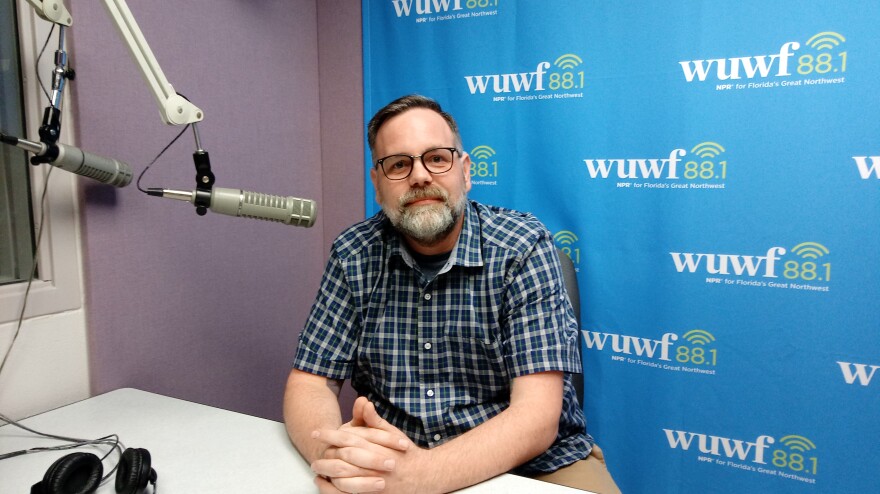In our third installment of “1968: Year of Discontent,” just two months after the slaying of Martin Luther King, there’s another murder of an iconic American figure during his run for the White House.
On March 16, 1968 – U.S. Sen. Robert Kennedy of New York made it official, announcing his entry into the race.
“I run because I am convinced that this country is on a perilous course, and because I have such strong feelings about what must be done, and I feel that I’m obliged to do all that I can.”
When President Lyndon Johnson announced he would not seek re-election two weeks later, Kennedy still faced two challengers for the Democratic nomination: Eugene McCarthy and Vice President Hubert Humphrey – the latter entering the race after Johnson's departure.
“I don’t know if it was the thought that he was the only one; but he was definitely one of the people that the American public looked to as someone that was honest and a strong leader, cared about the issues and was on their side,” said Andy Barbero, an historian at Pensacola State College and an expert on the 1960s.
The Vietnam War – and where all candidates stood on it – were perhaps the major issues in the 1968 campaign for both Democrats and Republicans. Kennedy called for a negotiated settlement as quickly as possible, and for the South Vietnamese people – and them only -- to determine that country’s future.
“Halting the bombing of [North Vietnam]; insisting upon reforms in [South Vietnam], and pressing for negotiations with all parties looking for the transfer of the present conflict from the military, to the political arena.”
Kennedy’s remarks came the day after LBJ’s announcement not to seek reelection.
In these past 16 days I have been in 18 states,” said Kennedy. “In Alabama, in Watts, in New York, in Washington D.C. and in Washington State I found Americans of all ages, colors and political beliefs deeply desirous of peace in Vietnam and reconciliation at home.
“Every president from Truman to Nixon escalated the Vietnam War, and they kind of found themselves in an unwinnable situation,” said PSC’s Andy Barbero. “Jack Kennedy had already made inroads into that with the Cuban Missile Crisis and the Bay of Pigs fiasco. So I think {Robert Kennedy] was very susceptible to this notion that you have to be strong on Communism. So I don’t know if [Vietnam] would have ended any differently or earlier.”
Barbero says part of RFK’s reason for seeking the presidency was, in a way, to pick up where John had left off after his assassination in 1963.
“I also think that he was haunted by his brother’s death,” said Barbero. “On the night that Martin Luther King was killed, he actually talks about his brother for one of the first times publicly after his death.”
“I had a member of my family killed, but he was killed by a white man,” Kennedy told the crowd in Indianapolis on the evening of April 4, 1968.
“He’s using his brother’s death to relate to Black America at that time,” Barbero said.

In the early morning hours of June 5, 1968 Kennedy was in Los Angeles, having just taken the June 4 California primary after victories in Indiana, Nebraska, and a same-day win in South Dakota.
“I thank all of you that made his possible this evening,” Kennedy told the crowded ballroom. “Now it’s on to Chicago and let’s win there.”
After his remarks, Kennedy attempted to exit the Ambassador Hotel through the kitchen. That’s were Sirhan Bishāra Sirhan, a Palestinian, was waiting. Sirhan, 24, believed that he was deliberately betrayed by Kennedy's support for Israel in the Six-Day War in June 1967.
Kennedy suffered two gunshot wounds each to the head and back, and died the next day at the age of 42. The youngest Kennedy brother, Massachusetts Sen. Ted Kennedy, delivered the eulogy during the funeral mass at St. Patrick’s Cathedral in New York.
“My brother need not be idealized [sic] or enlarged in death beyond what he was in life,” said Kennedy. “[But] to be remembered simply as a good and decent man who saw wrong and tried to right it; saw suffering and tried to heal it, saw war and tried to stop it.”
Bobby Kennedy was laid to rest at Arlington National Cemetery, 30 yards from JFK’s grave. Sirhan Sirhan was convicted of murder in 1969 and sentenced to life in prison. Now 74 years old, he’s at the Richard J. Donovan Correctional Facility in San Diego County, California.

Barbero was asked if, a half-century later, Robert Kennedy’s assassination still has some sort of impact. He says there is some, but wishes there was more.
“I wish more people understood what kind of politician and what kind of human being Robert Kennedy really was,” said Barbero. “How genuine he was, how caring he was on matters of civil rights and poverty. As well as he was very knowledgeable in foreign affairs. And it shows that he was willing to die for these beliefs as well.”
Robert Kennedy’s assassination also led to a major policy change at the U.S. Secret Service. Congress ordered that all presidential candidates would henceforth receive protection from that agency.

